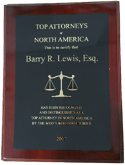1-800-348-6723
(Outside of Eastern and Central Massachusetts: 1-508-879-3262)

Other Services
Bankruptcy
Rules for Filing for Bankruptcy in Massachusetts
Chapter 7
Anyone wishing to file for Chapter 7 bankruptcy in Massachusetts must first pass the means test, which begins with a comparison of the debtor's family income to the median family income for a Massachusetts family of the same size. The debtor can file for Chapter 7 if the his or her family income falls below the state median. You can also file a Chapter 7 bankruptcy and be over the median income; however, you need to work the B22 means test form to show every deduction as it pertains to the debtors situation — the form would then show that no presumption of abuse is given, in which case you can still file chapter 7.
Based on the 2010 census, the Census Bureau listed median incomes in Massachusetts as $53,315 for a single earner; $69,204 for a family of two; $82,297 for a family of three; and $99,293 for a family of four, after which you add $7,500 for each family member in excess of four.
Given that the debtor's family income is above the state median, the debtor must deduct allowed monthly expenses from his or her monthly income to calculate his or her monthly disposable income. If then the debtor's monthly disposable income is less than $100, the debtor can file for Chapter 7. If the debtor's monthly disposable income is more than $100, but would not pay at least 25 percent of the debtor's debts over the next 60 months, the debtor can file for Chapter 7.
Chapter 13
A Chapter 13 is a good way to pay secured debt and debt that cannot be discharged.
When can you file for Chapter 13 bankruptcy? Generally speaking, if your monthly disposable income is over $100 and would pay 25 percent of your debts over the next 60 months, you cannot file for Chapter 7 bankruptcy. However, a Chapter 13 can be filed with a minimum $50 plan payment and a 0% plan. Basically, you will have proven that you could fund a Chapter 13 debt repayment plan. If you choose to file for Chapter 13 bankruptcy, you must propose a debt repayment plan to be approved by the bankruptcy judge. If your family income is below the state median, your repayment plan will last three years. If your family income is above the state median, your repayment plan will last for five years.
Discharge
In both Chapter 7 and Chapter 13 bankruptcy, the debtor must file the bankruptcy petition in the bankruptcy court serving his or her district, after which a bankruptcy trustee will be appointed. In a Chapter 13 case, the debtor makes monthly payments to the trustee. The trustee will distribute payment to each of the debtor's creditors each month. The debtor will receive a discharge of debts after all plan payments have been made. In a Chapter 7 case, the bankruptcy trustee will sell all the debtor's non-exempt property and use the proceeds to pay a portion of the debtor's creditors. The debtor will receive a discharge of debts after the creditors have been paid.
The Divorce Law Specialists - Office Locations
Areas of Service include but are not limited to the cities and towns listed below.
Click on a town for easy-to-follow directions.
Beverly, Boston, Braintree, Burlington, Cambridge, Framingham, Hyannis, Mansfield, North Andover, Westboro
1-800-348-6723 or 1-508-879-3262
Home Page • Our Law Offices • About You • Family Law • Resources • FAQs • Other Services • Contact Us
MAJOR CREDIT CARDS ACCEPTED
Copyright © 2002-2025 The Law Offices of Attorney Lewis • All Rights Reserved
1-800-348-6723 • BRL1963@gmail.com







